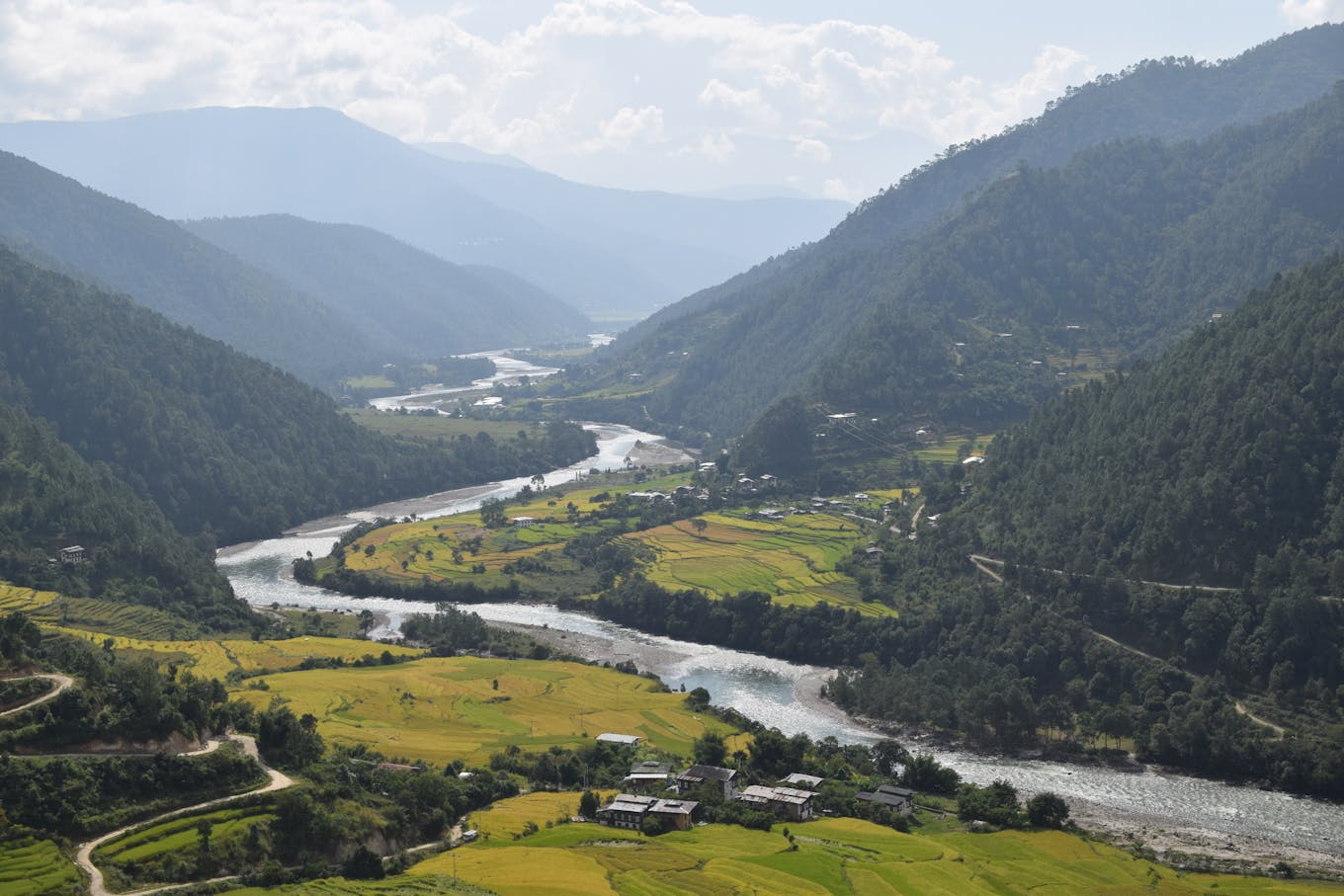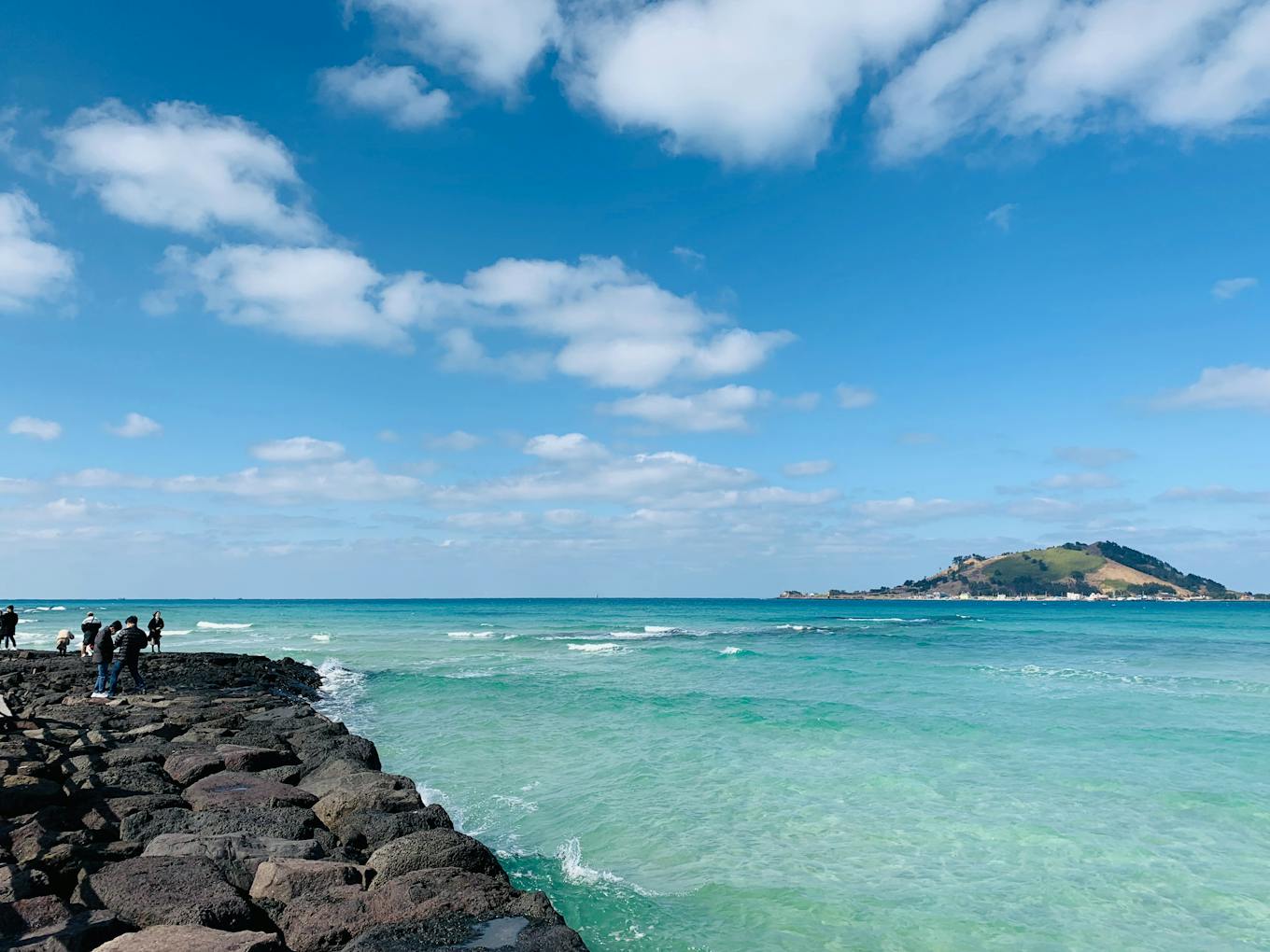Bali will impose a 150,000 rupiah (US$10) tax on tourists entering the “Island of Gods” from 2024 to preserve its environment and culture, officials declared on Wednesday (12 July).
To continue reading, subscribe to Eco‑Business.
There's something for everyone. We offer a range of subscription plans.
- Access our stories and receive our Insights Weekly newsletter with the free EB Member plan.
- Unlock unlimited access to our content and archive with EB Circle.
- Publish your content with EB Premium.
From January 2022 to March 2023, 1.03 million international tourists visited the island, a huge jump from the 51 foreign tourist arrivals in 2021, when the once-popular destination was hobbled by Covid-19 pandemic movement restrictions.
Before the pandemic hit, tourist numbers on Bali had been steadily rising. In 2019, the island welcomed a record 6.28 million foreign tourists.
But overtourism has been placing Bali’s natural resources under strain. Freshwater supplies have been diverted from agricultural areas to tourist precincts, according to an investigation by Al-Jazeera.
“
An eco-tourism tax may inculcate a ‘pay to pollute’ mentality among tourists, similar to the criticism faced by the carbon credit market.
Zhang Jiajie, assistant professor, human geography, Nanyang Technological University
A single tourist uses 1,785 litres of water per day compared to the 14 litres used by a local Balinese, according to the South China Morning Post. Consumption jumps to 4,000 litres a day for tourists staying in hotels.
Tourism has also become a major polluter, with tourist drawcards Kuta and Legian beaches overwhelmed by up to 60 tonnes of plastic rubbish daily.
When asked if the new tax would deter visitors, Governor I Wayan Koster told reporters that the authorities did not believe numbers would fall.
“It’s not a problem. We will use it for the environment and culture, and we will build better quality infrastructure so travelling to Bali will be more comfortable and safe,” he said.
The pros and cons of eco-tourism taxes
An eco-tourism tax can make two strikes with one pitch if implemented properly, said Zhang Jiajie, assistant professor in human geography at Singapore’s Nanyang Technological University.
A tax can not only curb the environmental degradation caused by overtourism, but also fund environmental conservation initiatives using the revenue collected.
“The main value of an eco-tourism tax is that tourists commonly are not paying the ‘full’ cost of their use and impact,” said Noreen Breakey, lecturer, school of business at The University of Queensland.
“The tax itself can thus serve to remind guests that their visit has an environmental impact, which can be a positive thing,” said Christopher Khoo, managing director of tourism consultancy MasterConsult Services.
An eco-tourism tax could, however, deter tourists. This could lead to a loss in revenue for tourism-dependent businesses, which contribute to 60 per cent of Bali’s economy.
“Negative tax experiences can seriously affect the whole visitor experience and tourists’ opinion of a destination, impacting social media posts and repeat visitation,” Breakey said.
In 2022, the Travel & Tourism sector contributed 7.6 per cent to global gross domestic product (GDP), according to the World Travel & Tourism Council (WTTC). Tourism is also a major source of employment due to its labour-intensive nature and the multiplier effect on employment in related sectors.
The levy amount therefore needs to be carefully calibrated to strike a balance between economic growth and environmental conservation.
Leonardo Nava, assistant professor at National Kaohsiung University of Hospitality and Tourism, said that eco-tourism taxes can help alleviate the neo-colonialist effects of tourism, where citizens from wealthy nations visit exotic developing countries and leave their waste behind.
However, Zhang said that it would be myopic to assume that international visitors are the sole culprits of environmental degradation or that a “green” tourism tax will help to improve the quality of life for locals.
Zhang said that it is often unclear how the funds raised from an eco-tourism tax would benefit local communities.
“A robust framework needs to be set up for proper reporting on how the funds raised by such taxes benefit conservation efforts and local livelihoods. Otherwise, the trickle-down effect is questionable,” he said.
“Also, an eco-tourism tax may inculcate a ‘pay to pollute’ mentality among tourists, similar to the criticism faced by the carbon credit market,” he added.
Which Asian jurisdictions have imposed an eco-tourism tax?
Bhutan
The tiny Himalayan kingdom of Bhutan, regarded as one of the world’s most exclusive tourism destinations, raised tourism taxes in September 2022 as it reopened its borders.
International visitors to Bhutan will now be taxed a sustainable development fee (SDF) of US$200 a night, a spike from US$65 per night for the past three decades.
Government officials told reporters that the revenue collected would be used to offset the carbon footprint of tourism, improve carbon-neutral infrastructure and maintain the country’s natural landscape.

Bhutan is renowned for its pristine landscape. Image: Daniel Grandfield / Unsplash
The tax hike was widely criticised. Observers told hospitality news website Hotel Management Network that the steeper taxes would deter tourists, especially those from lower-income neighbouring countries Bangladesh and India, from visiting Bhutan.
Khin Omar Win, co-founder and owner of five-star hotel Gangtey Lodge Bhutan, told travel news website Travel Weekly Asia that its implementation could have been staggered to allow the industry to recover quicker and for the market to adjust to the policy change.
The South Asian country adjusted its tourism tax last month in response to the backlash.
Jeju
Tourists may soon have to pay an eco-tourism tax of about 8,170 won (US$6.45) each day to enter South Korea’s Jeju Island.
In April, local authorities said they are looking to impose tourism fees to support environmental conservation efforts.

Jeju Island, known for its emerald waters and sandy beaches, is so popular that Seoul to Jeju is the busiest flight route in the world. Image: Jieun Lim / Unsplash
One Singaporean holidaymaker told Singapore’s national broadsheet The Straits Times that the fees are reasonable and she will continue to plan her visit to Jeju, touted as the “Hawaii of Asia”, in 2024. Others, however, were not as receptive, complaining that the fees were excessive.
Are eco-tourism taxes justified?
According to data from the UNWTO, more than 900 million tourists travelled internationally in 2022 – double the number recorded in 2021 though only 63 per cent of pre-pandemic levels.
While every region recorded significant increases in international tourist numbers, Asia and the Pacific was the slowest growing region, reaching only 23 per cent of pre-pandemic levels.
Khoo said that eco-tourism taxes have a place in post-pandemic Asia. “Muted or not, the very nature of tourism means that there is some kind of environmental impact,” he said.
“Even before the pandemic, the world was wrestling with environmental degradation. Policies such as eco-tourism taxes can and should be actively explored,” he added.
Zhang agreed. “It would be naïve to think that overtourism is no longer a problem just because tourism numbers have dropped significantly since the onset of the Covid-19 pandemic,” he said.
“Rather, tourism planners and policy makers should take this downtime to re-evaluate their strategies for sustainable tourism development and to promote responsible tourism practices,” he added.
How else are jurisdictions curbing the adverse impacts of tourism?
Bans
Last month, Bali announced a ban on tourism in its mountainous regions with “immediate effect” in a bid to preserve its sacred peaks following a rise in behaviour by tourists deemed to be disrespectful. However, the ban drew ire from local Balinese whose livelihoods were affected by the ruling.
Capacity control
Bhutan has a longstanding tradition of capping tourist numbers to preserve its national identity.
In 1999, 491,504 tourists visited Nepal, but only 7,000 were permitted to enter Bhutan. Even today, visitors to Bhutan must book an arranged tour and be accompanied at all times. The number of annual visitors is still controlled but around 275,000 entered in 2018.
Prior to the pandemic, tourists were required to spend a minimum of US$200-US$250 per day. The measures were scrapped in 2022 in favour of a set US$200 SDF for all tourists.
Khoo said that forward-looking diving resorts, such as Raja Ampat in West Papua, Indonesia, and state parks also limit the number of daily visitors.
“Planned tourism development should be a watchword for tourism authorities, so that they have an idea of the maximum capacity an attraction can sustain without causing long-term damage,” he said.
Countries can also regulate the number of hotel licenses issued. “Too often the issuance of hotel licences is done without regard for the physical constraints of the location, and the problems that arise years later are intractable,” said Khoo.
Education
Khoo said that more can be done to educate both international and local stakeholders about the adverse impacts of tourism.
“The tourist of today is sensitive to environmental concerns. Explaining the type and extent of local impacts can go a long way in reducing the environmental footprint of tourists,” Khoo said.
In April, The Bahamas’ Ministry of Tourism, Investment and Aviation (MOTIA) re-introduced a campaign to keep its coastlines clean.
Fines
Thailand has banned smoking and littering at 24 beachside locations popular with tourists, including Patong in Phuket and Bo Phut in Koh Samui, over environmental concerns.
Enacted in 2018, the law protects 24 beaches in 15 provinces along the Andaman coast and the Gulf of Thailand. Anyone who violates the law could face up to one year in jail, or a fine of up to 100,000 baht (US$2,890), or both.
Guidelines
Singapore, Asia’s second most-visited city, has guidelines that encourage tourists to refrain from feeding wildlife and to stay on designated walking paths in parks, nature reserves or sanctuaries.
“Guidelines and visitor information have real value as tourists often want to do the right thing, but may not know the appropriate cultural attire required in different settings, or whether seafood on a menu is actually endangered,” Breakey said.
“While bans, fines and guidelines are all possible ways to deter irresponsible behaviors in the short run, education, in particular sustainability education pertaining to responsible tourism, remains key to forming an ecosystem of care for a destination’s human and natural environments,” Zhang said.








